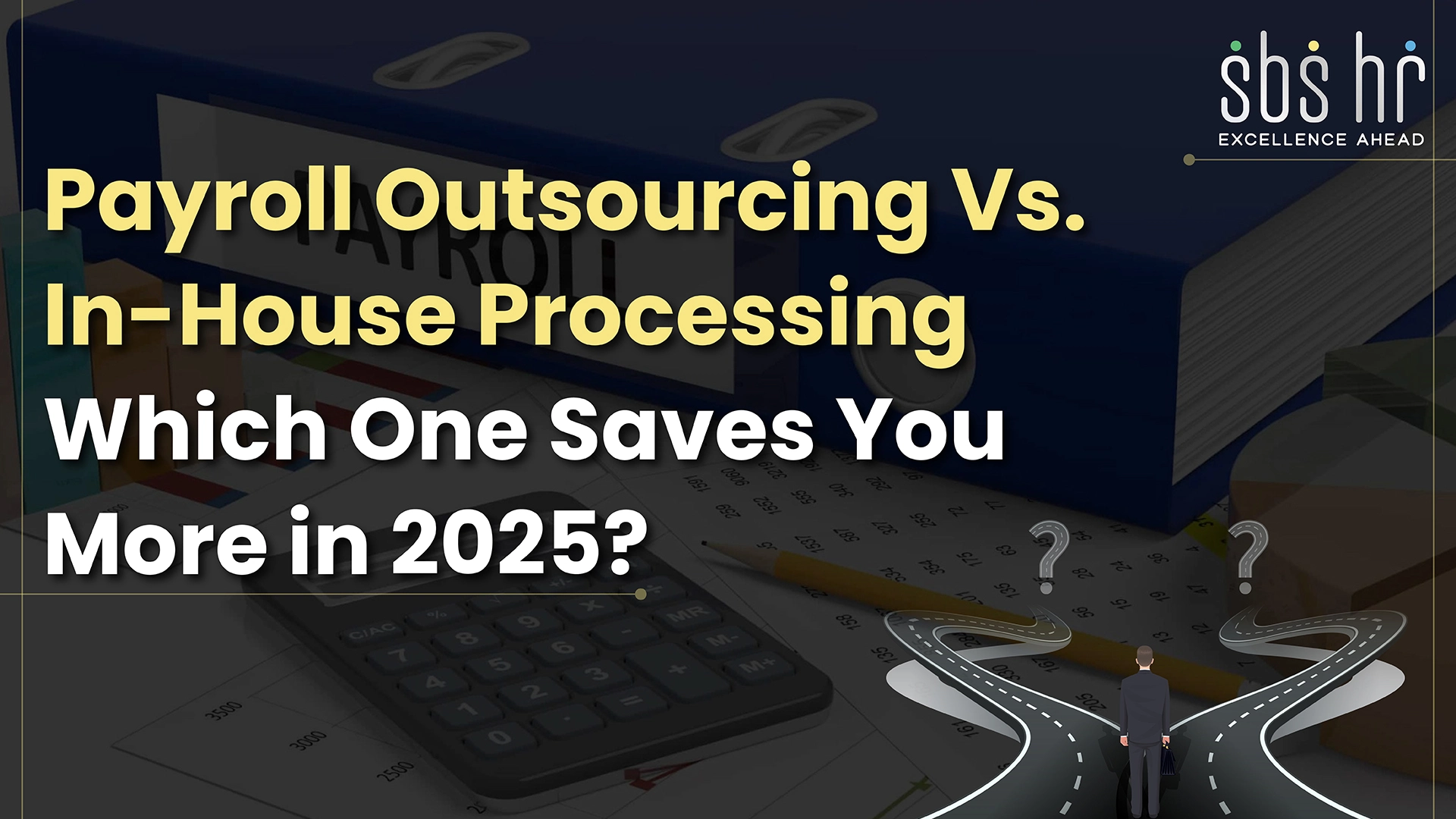Payroll Outsourcing vs. In-House Processing: Which One Saves You More in 2025?
Payroll serves as the financial heartbeat of any organization. Ensuring employees receive accurate and timely payments is not just about compensation—it impacts workplace morale, legal compliance, and operational efficiency. As we step into 2025, businesses must ask themselves: should they continue managing payroll internally or transition to payroll outsourcing services for a more streamlined approach?
With increasing compliance demands, ever-evolving tax regulations, and the complexities of managing payroll across multiple locations, companies need to carefully evaluate both options. Let’s explore which approach truly maximizes cost savings and efficiency!
Hidden Costs of Managing Payroll In-House: Is It Worth It?
Managing payroll in-house may seem like a straightforward solution, but it comes with several hidden costs and challenges:
1.Software & Infrastructure Investments
To process payroll in-house, businesses must invest in payroll software, data security, and compliance tools. These systems require frequent updates to stay aligned with tax regulations, adding to ongoing expenses.
2.HR & Finance Team Costs
Employees responsible for payroll need to be well-versed in taxation, labour laws, and compliance. Hiring and training payroll specialists increase overhead costs, making it an expensive endeavour.
3.Compliance Risks & Legal Penalties
Tax laws and labour regulations frequently change. Errors in payroll calculations, late tax filings, or incorrect deductions can lead to hefty fines and legal troubles. Companies handling payroll in-house must stay updated on compliance or risk serious financial consequences.
4.Time-Consuming Processes
Processing payroll requires careful calculations, tax filings, benefits administration, and audits. This takes up valuable time that HR and finance teams could use for strategic initiatives like employees’ payroll and on-boarding improvements.
While some businesses prefer in-house payroll for direct control, it can become an overwhelming and costly burden, especially for growing companies.
The Growing Shift Toward Payroll Outsourcing: Why Businesses Are Making the Move:
As companies expand, many are turning to payroll outsourcing services to simplify operations and reduce costs. But what makes outsourcing such a game-changer?
1.Financial Optimization
One of the biggest outsourced payroll benefits for growing teams is cost savings. Instead of maintaining an expensive in-house payroll department, businesses pay a predictable subscription fee for payroll services, often at a fraction of the cost.
2.Compliance Assurance
Tax laws and payroll regulations change frequently. Payroll outsourcing providers ensure businesses stay compliant with the latest tax codes, preventing costly fines and audits.
3.Time Savings & Focus on Core Business
HR teams often juggle multiple responsibilities. By outsourcing payroll, businesses free up internal resources, allowing HR to focus on talent acquisition, employees’ payroll and on-boarding, and employee engagement strategies.
4.Scalability & Flexibility
As companies expand across multiple locations, managing payroll internally becomes complex. Payroll outsourcing services handle multi-state or even global payroll efficiently, ensuring seamless processing regardless of business size.
5.Seamless HR & Payroll Integration
Many outsourcing providers offer integrated solutions that sync payroll with employees’ payroll and on-boarding tools, attendance tracking, and tax management, ensuring a smooth experience for both HR and employees.
Choosing the Ideal Payroll Solution: What Works Best for Your Business?
When deciding between in-house payroll and outsourcing, consider these key factors:
✅ Business Size & Growth Plans – If you’re a startup with a handful of employees, in-house payroll may suffice. But for fast-growing businesses, outsourcing payroll ensures smooth expansion.
✅ Compliance & Risk Tolerance – If your business operates in multiple regions, compliance becomes more complex. Payroll outsourcing services mitigate these risks with built-in compliance management.
✅ Budget & Resources – Managing payroll internally requires ongoing investments in software, security, and staffing. If your business prefers predictable costs, outsourcing payroll is the smarter financial move.
✅ HR & Finance Workload – If your HR team is stretched thin, outsourcing payroll allows them to focus on strategic initiatives like employees’ payroll and on-boarding rather than administrative payroll tasks.
Final Takeaway: Which One Saves You More?
At first glance, in-house payroll might seem like a cost-saving solution, but when factoring in compliance risks, software investments, HR workload, and scalability challenges, payroll outsourcing services often come out on top.
For growing businesses, outsourcing payroll is not just a cost-cutting measure—it’s a strategic decision that enhances efficiency, accuracy, and compliance while allowing HR and finance teams to focus on what truly matters: scaling the business.
For any enquiries or concerns regarding payroll outsourcing, don’t hesitate to contact us at +91 89259 27076.


